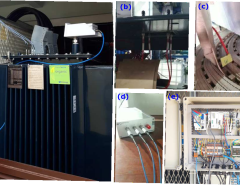Authors: Gökhan Demirel, Simon Grafenhorst, Kevin Förderer, Veit Hagenmeyer
Published on: April 03, 2024
Impact Score: 8.0
Arxiv code: Arxiv:2404.02763
Summary
- What is new: This research delves into how mini-photovoltaic systems affect low-voltage grid stability, a relatively underexplored area focusing on grid dynamics and consumer energy transition participation.
- Why this is important: The rising use of mini-photovoltaic systems on low-voltage grids introduces power quality, loss, transformer loading challenges, and affects the function of voltage-regulating devices.
- What the research proposes: The paper proposes utilizing autonomous inverters for providing ancillary services and emphasizes the importance of adaptable control strategies for distributed energy resources.
- Results: Studies showed that proper control strategies could mitigate the adverse effects on the grid caused by mini-photovoltaic systems, highlighting the effectiveness of decentralized DER control.
Technical Details
Technological frameworks used: Sensitivity analysis, autonomous inverter usage for ancillary services
Models used: Case studies on distributed vs. decentralized DER control strategies
Data used: Power quality, power loss, transformer loading, and functioning of other distributed energy resources data
Potential Impact
Energy sector, particularly companies specializing in low-voltage grid management, renewable energy systems, and energy storage solutions.
Want to implement this idea in a business?
We have generated a startup concept here: GridFlex.


Leave a Reply